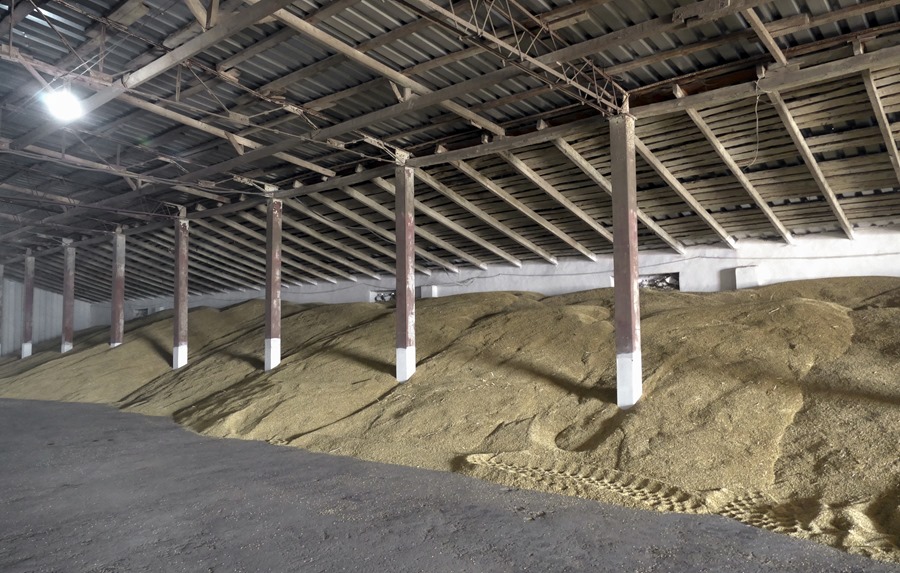Belen Delgado |
Madrid (EFE).- The rupture of the agreement between Russia and Ukraine for the export of grain through the Black Sea will have little impact on world prices in the immediate future, according to the forecasts of the Agricultural Market Information System (AMIS).
Russia’s decision to end the pact signed a year ago tests international food markets again but, according to AMIS secretary Joe Glauber, “its impact on world prices will be negligible in the short term.”
Future contracts for agricultural products became more expensive in the days after the Russian announcement on Monday, but this Thursday those for wheat limited their increase to 2% on the Chicago Stock Exchange and fell 0.5% on the Euronext operator in Paris.
In statements to Efe, Glauber maintains that the market has anticipated the end of the agreement in recent weeks.
The AMIS system was launched in 2011 by the G20 after strong increases in the prices of the main agricultural products between 2007 and 2010, with the aim of reinforcing market transparency and reducing volatility.
This platform brings together the most important countries in the trade of these raw materials and helps to coordinate political action.
More than a decade later, the war in Ukraine has once again generated uncertainty in world markets, although the Black Sea agreement and the open corridors to the European Union (EU) had partly eased those tensions and managed to keep international prices below pre-war levels.
Consequences for Ukraine
Glauber says the pact with Russia has helped Ukraine export much of the grain that was stuck in the country after the Russian invasion.
“Unfortunately Ukraine has not benefited so much. Shipping costs through so-called solidarity corridors have been very high due to long inspections and have been mostly absorbed by Ukrainian producers in the form of lower prices,” he notes.
The also researcher at the International Institute for Food Policy Research (Ifpri) considers that these circumstances, in addition to the war, have created “strong disincentives” for the agricultural sector, which has reduced its production of corn and wheat by up to 40% this year compared to 2021.
With less grain to export, it is estimated that kyiv will continue to ship some two million tons a month through solidarity routes.
“Ukraine will bear the brunt” of the suspension of the agreement, maintains the expert, for whom the only viable alternative would be to export through the corridors currently open, a logistical “challenge” that “will intensify tensions with its western neighbors”.

Despite assurances that these exports will not sell to Eastern Europe, they will still compete for rail cars and port facilities, making transportation more expensive for all producers in the region.
According to the expert, these additional costs will make Ukrainian growers see even lower prices and have more disincentives to plant in autumn and spring.
“This creates a longer-term problem because Ukraine, one of the main exporters of wheat and corn, is now operating at reduced capacity. Despite relatively good global production, global stocks have not rebounded so there is less protection in the event of a major production shortfall somewhere else,” he adds.
alternative pathways
With these insufficient alternative routes, Ukraine hopes to continue exporting its grain through the Black Sea even without the participation of Russia, which has been quick to attack Ukrainian ports with missiles and drones.
Moscow has threatened ships headed for those ports, while offering free grain to Africa as it continues to explore options for exporting its grain to countries most in need.
According to estimates by AMIS, the International Grains Council (CIC) and the United States Department of Agriculture (USDA), Russia will have a maximum of wheat exports this year due to last year’s record crop.
Moscow has complained that its exports have been hurt because agricultural banks have no access to the SWIFT system because of the sanctions, and that has prevented some importers from buying Russian grain.
Precisely the reconnection of the Russian agricultural bank Rosseljozbank to SWIFT has been one of the conditions that Russia has set to return to the agreement, together with the end of the sanctions on spare parts for agricultural machinery and the resumption of operation of the Togliatti-Odesa ammonia pipeline, among others.
In its latest report from July, AMIS says that changes in Ukrainian grain and oilseed production can have a “big impact” on its population and global supplies, particularly in countries that depend on imports from Ukraine.
In addition, he points out that the destruction in June of the Kakhovka dam on the Dnieper River and the drying up of the irrigation channels sow more doubts about the shortage of production and exports from Ukraine.






